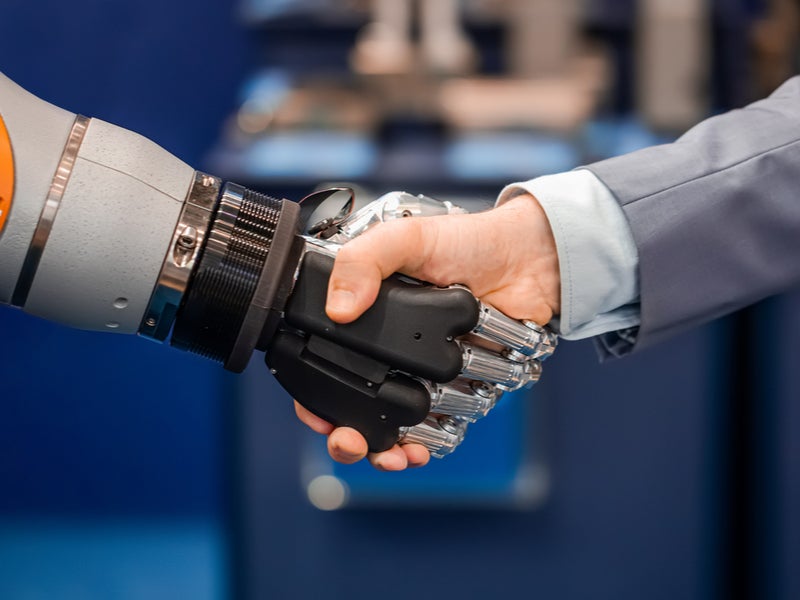From the introduction of the assembly line in the automobile industry in 1913 to Amazon reaching 200,000 robots working in its warehouses in 2020, the past century has seen an unprecedented level of technological progress in the workplace. Since the Industrial Revolution, the role of machines has been controversial, raising hope for progress as well as fear of change. However, despite its rapid pace, automation has not made human labour obsolete. An MIT study revealed that the employment-to-population ratio rose during the 20th century.
Listed below are the major milestones in the journey of the future of work theme, as identified by GlobalData.
1913 – Henry Ford installed the first moving assembly line, revolutionising the manufacturing process.
1920 – Czech author Karel Capek used the term “robot” in his play R.U.R.
1926 – A general strike in the UK, protesting wage reductions and poor working conditions, lasted for nine days.
1927 – Fritz Lang’s film Metropolis included the character of Maria, one of the first robots depicted in cinema.
1930 – The phrase “technological unemployment” appeared in a book by economist J.M Keynes.

US Tariffs are shifting - will you react or anticipate?
Don’t let policy changes catch you off guard. Stay proactive with real-time data and expert analysis.
By GlobalData1946 – ENIAC, the first electronic general purpose computer, was switched on to calculate artillery firing tables.
1948 – William Grey Walter built the first autonomous robots, pioneering the field of cybernetics.
1950 – Alan Turing devised a way to measure the ‘intelligence’ of a machine.
1959 – John McCarthy and Marvin Minsky founded the MIT AI Lab.
1961 – Unimate, the first industrial robot, began work on the General Motors assembly line.
1961 – IBM introduced the electric typewriter, improving typists’ speed and productivity.
1964 – IBM launched the System/360 family of mainframe computer systems.
1967 – Military strategist Herman Kahn warned of technology‘s potential to enable authoritarian surveillance.
1968 – The film 2001: A Space Odyssey imagined a sentiment machine with intelligence that matched that of humans.
1970 – SRI International’s Shakey became the first mobile robot controlled by AI (connected to it using a radio link).
1972 – Tokyo’s Waesda University developed Wabot-1, the first full-scale humanoid robot.
1981 – The Japanese government set aside $850m for a project to develop a fifth-generation computer.
1989 – UK computer scientist Tim Berners-Lee invented the World Wide Web.
1996 – Honda launched the P2 humanoid robot.
1997 – IBM’s Deep Blue defeated world chess champion, Garry Kasparov.
2003 – Skype was founded by Niklas Zennström and Janus Friis and developed in Estonia.
2005 – A Stanford robot drove autonomously for 131 miles along an unrehearsed desert trial.
2007 – Apple launched the first iPhone, creating the mobile internet as we know it today.
2009 – Google started testing robot cars on roads.
2010 – Facebook began using facial recognition to help tag photos.
2011 – IBM’s Watson defeated TV game show Jeopardy!’s two greatest champions.
2011 – Apple’s virtual assistant, Siri, appears in the iphone 4S.
2012 – Rethink Robotics unveiled Baxter, its collaborative robot designed to work alongside humans.
2013 – The Slack collaboration tool was launched.
2016 – Google DeepMind’s AlphaGo algorithm beats world Go champion Lee Sedol.
2018 – Thousands of Google staff across the world staged walkouts targeting workplace culture.
2020 – Amazon reportedly had 200,000 robots in operation in its US warehouses.
2020 – The Covid-19 pandemic forced millions of people to start working remotely.
2022 – The shared workplace model will run out of steam due to the pandemic.
2025 – Remote work will become commonplace, one of the lasting legacies of Covid-19.
2030 – Despite widespread anxiety, the Future of Work (FoW) will not lead to mass unemployment.
This is an edited extract from the The Future of Work – Thematic Research report produced by GlobalData Thematic Research.









